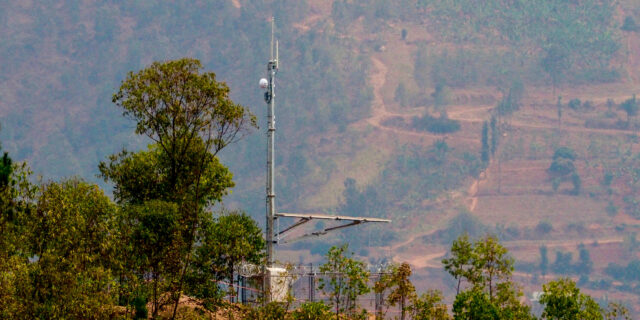
Coverage As A Service
Vanu pioneered technical and business innovations to service rural markets that previously were not economically feasible.
The primary challenge in extending wireless broadband coverage to rural areas in developing markets is economics.
The per-site revenue in rural areas are lower due to lower incomes and more disperse population, while the cost of running the sites is higher primarily due to the need to run diesel on off-grid sites in these areas. Lowering network operating costs is essential to achieving the goal of universal coverage. Even if the network equipment and installation were completely free, this would not result in greater rural developing market coverage, since that network would still lose money every day that it is in operation.
Vanu addresses the problem by combining innovative technology with an innovative business model in three aspects:
- We build wholesale wireless networks, so we do not have subscribers, but work in partnership with existing carriers;
- We eliminate the cost, security, and environmental problems of diesel, with industry-leading efficiency and lowest power consumption base station, which consumes only 50 watts of power while transmitting 10 watts enabling operation on only solar and battery;
- Using small cell technologies, we focus coverage where people live, work, and commute.
Combined, these factors lead to different network designs that achieve high levels of network access with operating expenses low enough to enable sustainable coverage despite comparatively low population densities and low revenue per user.
News & Insights
Vanu Partners with Digital Connect Infrastructure and Telecoms (DCIT) to Build Solar-Powered Mobile Network Sites in Nigeria

5th Mar
Partnering locally with Digital Connect Infrastructure and Telecoms Limited (DCIT) in Nigeria, Vanu will build mobile network sites...
Read article
K-NET Limited Deploys Vanu Mobile Network Infrastructure to Serve Off-Grid Communities in Liberia and Sierra Leone

4th Mar
K-NET Limited Deploys Vanu Mobile Network Infrastructure to Serve Off-Grid Communities in Liberia and Sierra Leone Vanu Partners...
Read article
Vanu and NuRAN work together to connect Marshall Islands

4th Mar
Vanu and NuRAN work together to connect Marshall Islands Lexington, MA, USA and New Delhi, India and Quebec,...
Read article
View All News